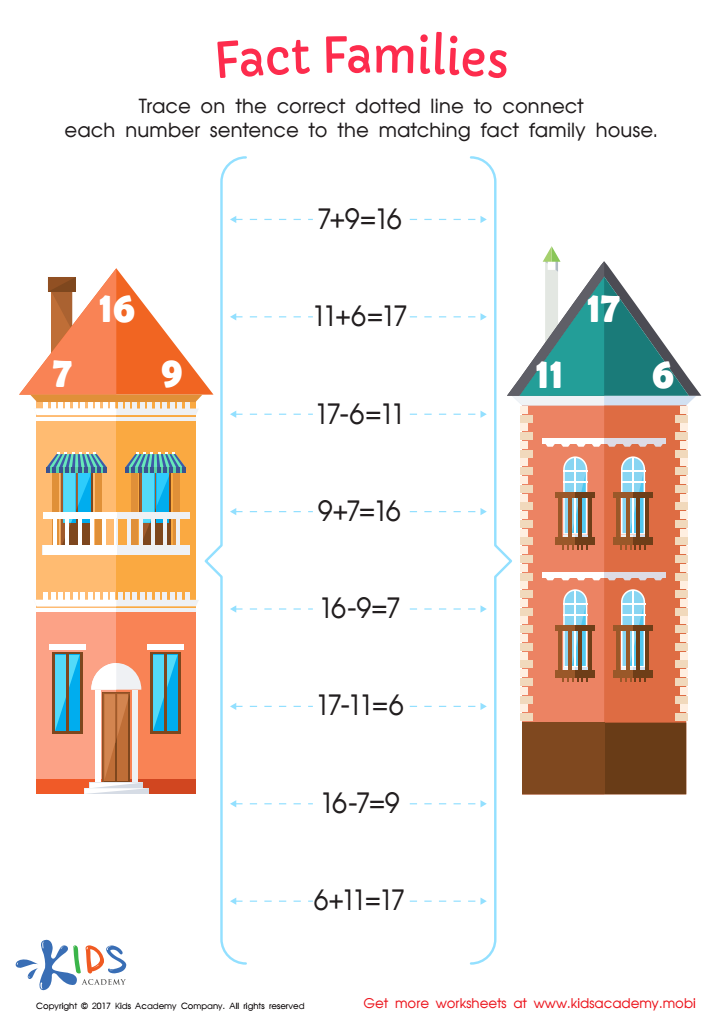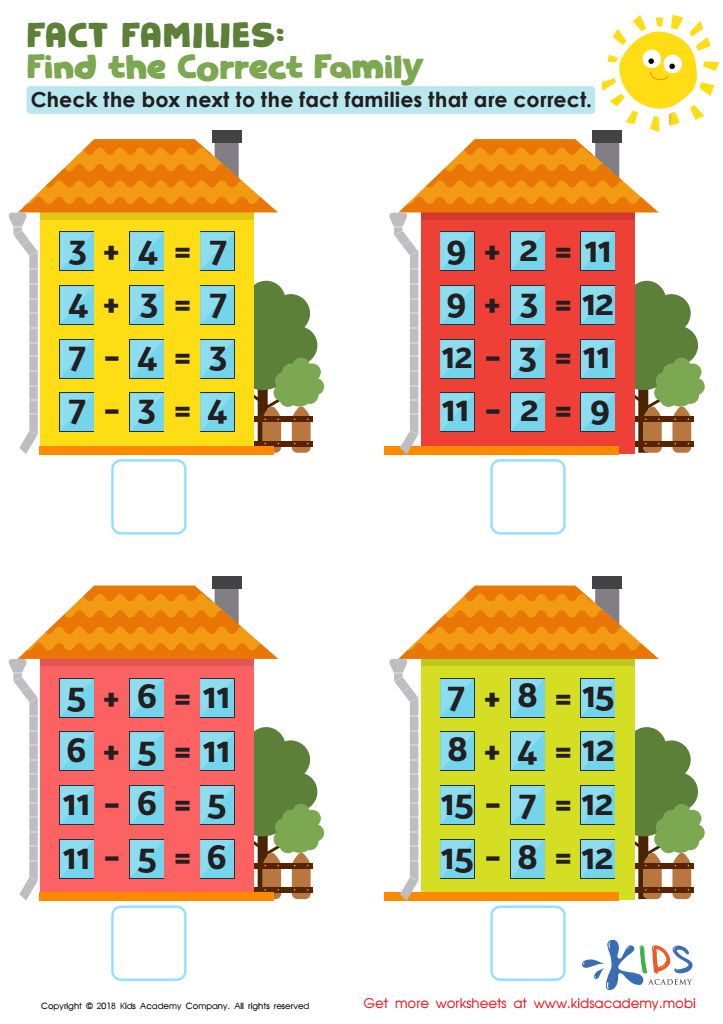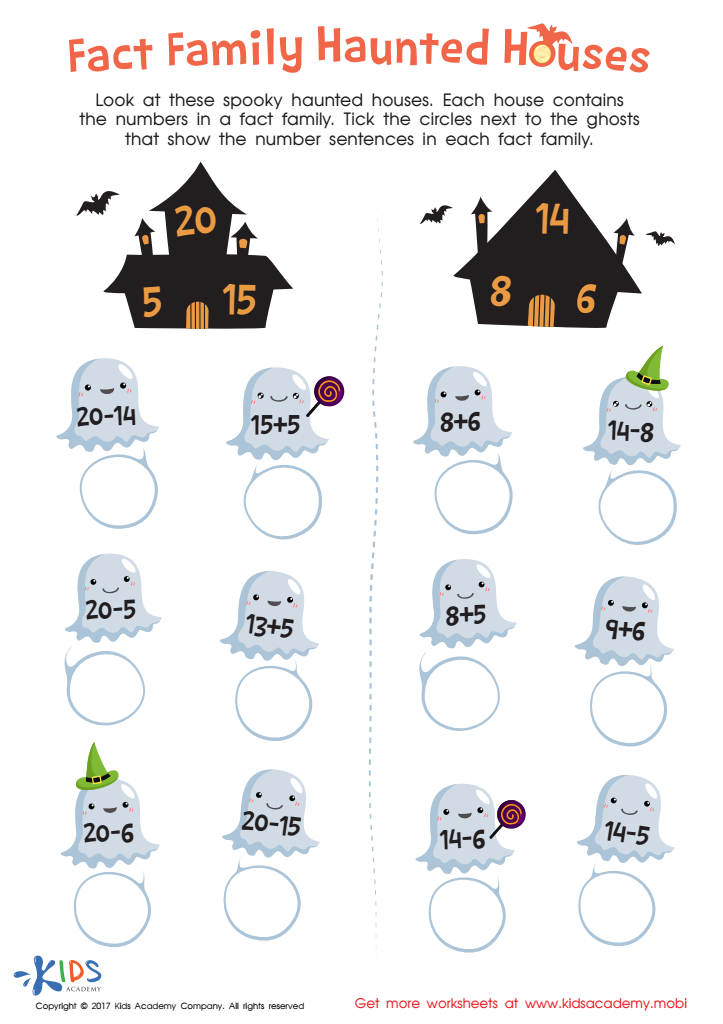Understanding fact families Normal Math Worksheets for Ages 5-7
3 filtered results
Difficulty Level
Grade
Age
-
From - To
Subject
Activity
Standards
Favorites
With answer key
Interactive


Fact Families — Add and Subtract Worksheet
Kids will love seeing how families of numbers "live" in their own houses!
Fact Families — Add and Subtract Worksheet
Worksheet


Fact Families: Find Correct Family Worksheet
Test your students' math and reasoning skills with this worksheet. It features 4 houses, each with a group of fact families on it. Some are correct, some are wrong - help students identify which are correct and circle the box next to them. This will help them progress in school.
Fact Families: Find Correct Family Worksheet
Worksheet

 Assign to the classroom
Assign to the classroom













